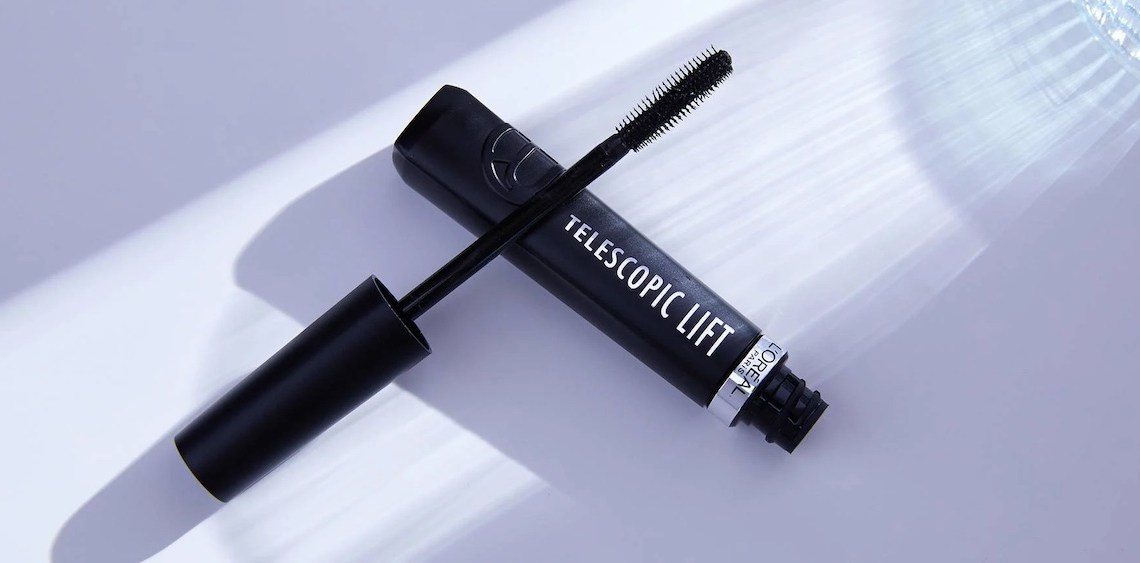Another day, another influencer controversy.
On Tuesday, TikTok-native influencer Mikayla Nogueira promoted L’Oréal Paris’s Telescopic Lift mascara to her 14.4 million followers. In the video, Nogueira praises the product and demonstrates applying two coats of it on one undone eye, before cutting to a profile shot of her lengthened lashes. Now, she’s facing a barrage of accusations that the “after” shot features false lashes.
The video has since garnered over 17 million views and 40,000 comments. Comparatively, the average number of views and comments across her previous seven posts is 6.7 million and 3,116, respectively. Of the comments, the majority are negative, with many accusing Nogueira of using Ardell Wispies false eyelashes. One commentator states, “Well, I won’t buy the mascara, but I added Ardell Wispies to cart.”
Representatives of Nogueira and L’Oréal Paris did not respond to a request for comment. Nogueira, known in part for her deep Bostonian accent, has built a reputation for a no-nonsense yet light-hearted attitude toward product reviews. A 2021 video she posted for faux lashes from beauty brand Kiss even calls out the common tactic of mascara brands using fake lashes to demonstrate product superiority.
This is not the first time mascara has been caught up in false advertising. Between 2007 and 2017, at least five U.K. mascara ads were pulled for false enhancement of lashes. The advertised brands were Dior, CoverGirl, Maybelline and Rimmel twice, in 2007 and 2017. A 2013 New York Times story covered the mascara advertising issue and the thorny topic of authenticity in ads. But what was not explored at the time, largely due to its nascency, was the role influencers play in advertising and demonstrating authenticity, and the reason trip-ups cause a deluge of backlash.
“People have so much trust for the creators and influencers they follow, rather than the ads they see on TV. It’s [part of the reason] they look toward creators to tell them what mascara to wear or what products to buy. So this feels like a violation of that trust,” said Zaven Nahapetyan, co-founder of social media platform Niche, which is designed to encourage more authentic online communities. “But you can have authentic brand sponsorships and partnerships. As we shift into a new era of social media and marketing, it becomes more important for brands [and influencers] to develop relationships with their communities.”
After the initial Tuesday video, the news has picked up momentum, with both Nogueira’s followers and other influencers weighing in. TikToker Anania Williams (@Anania00), who has 2.1 million followers, commented on Nogueira’s video with, “Oh girl.” Jeffree Star — heavily controversial himself — made a lightly veiled comment on Twitter about going back to reviewing makeup products next week after feeling disgusted that content creators “can’t stop lying to their audiences.” Star has not posted a YouTube review in two months. Influencer and founder of nail polish brand Lights Lacquer Kathleen Lights, who has 7 million followers across YouTube, Instagram and TikTok, posted an Instagram Story on Wednesday expressing her frustration with other content creators who exaggerate or falsify product reviews. In another Instagram Story posted Thursday, Lights further commented, saying she found the vitriol toward Nogueira excessive.
TikTok creator Madison Lewis (@mads.yo; with 12.6 million followers), posted a video in defense of Nogueira, stating, in part, “Why are you guys hating on someone for ‘lying’? … Even if she did put on false lashes, why does it matter? I know it’s false advertising, but isn’t everything false advertising?” Lewis further asked what the difference is between a food commercial making its food look more attractive than its real-life representation and influencers making a sponsored product seem better performing. The video appears to have since been deleted.
“[Beauty] is an industry that’s about image. So, to a certain degree, you’re always going to see advertising and know there’s a prestige or glamorous sheen,” said Douglas Brundage, CEO of creative agency Kingsland. “But [this] has to do with what a brand or person is you actually claiming. You don’t see McDonald’s saying, ‘This [burger] is healthy for you.’”
Though Lewis does not directly call it out, her comments and skepticism intersect with the growing cultural attention around hucksterism, in which hustling and grinding for work has seemingly evolved into flagrant lies and gaslighting for personal enrichment. Brundage said he feels the ire Nogueira has received from followers and fellow creators is partially a reaction to this pervasive feeling that everyone and everything cannot be trusted. Nogueira previously temporarily stepped back from social media in late 2022 to seek treatment for mental health,following a different social media outcry regarding her comments on the work-life of influencers.
“We’re in the golden age of the huckster,” he said. “We [feel] we can’t trust institutions. People are upset with Nogueira because it seems like there’s a new thing like this coming out every day. We also live in a culture where, online, everyone wants to call everything out as a problem. But it’s not healthy.”
Brundage argued that additional and more detailed regulations from the Federal Trade Commission and other regulatory bodies should exist. He said creating a corporate culture that focuses on authenticity and strong ethics can prevent such instances in brand-owned advertising or shield it from similar influencer hiccups.
The only winner in this case appears to be Ardell Beauty. Ardell maintains a TikTok account with 25,500 followers and has posted three videos in reference to its entanglement in the saga. The first video, with the caption, “Our notifications over the past few hours,” shows a person receiving an overwhelming number of messages. The second, posted Thursday, is a non-verbal video with an up-close shot of Nogueira’s eyes and lashes, before showing a product page for Ardell Demi Wispies. The caption reads, “Miss Demi Wispies is loving the spotlight.” The third promotes a new giveaway campaign for Ardell Wispie. Parent company American International did not respond to a request for comment.




